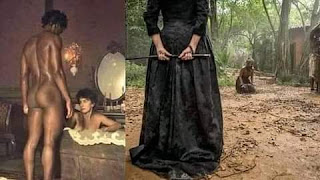SPINSTER OF THIS PARISH, A COMMON SCOLD
STORIES OF CRIME, PREVENTION & PUNISHMENT
in 1655, Elizabeth Banes, described in court as a spinster of Southwell, was accused by her neighbours of being a common scold. They forced her to face charges for her continued brawling and ‘turbulent spirit’. Found guilty, she was ordered to be ‘cuckt in the cucking stool at Southwell’.
The cucking stool was one of a number of implements used as much to humiliate the culprits as to harm them. Other examples were the pillory and the stocks.
According to Hampton Copnall in the Nottinghamshire County Records, this form of punishment was widely used throughout the 17th century. The offender was tied to a chair on a beam and repeatedly ducked under water. Common scolds were frequently treated to this experience. By 1654 the cucking stool at Southwell had been destroyed in the Civil War and the want of a replacement had "encouraged many lewd and turbulent women to continue in their unquiet behaviour to the great disquiet of their neighbours". An order was made for a new one to be installed at the place of the original which may have been at the Greet River. Elizabeth Banes must have been one of the first to suffer the new machine.
A ballad, dating from about 1615, “The Cucking of a Scold”
Then was the Scold herself,
In a wheelbarrow brought,
Stripped naked to the smock,
As in that case she ought:
Neats tongues about her neck
Were hung in open show;
And thus unto the cucking stool
This famous scold did go.




Comments
Post a Comment